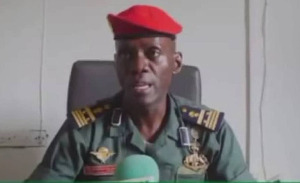Often divided because of the penalties imposed on some media, the national Council of communication (NCC) and newspaper editors from Cameroon seem to have made a new start.
At the end of the meeting organized on Monday by the Vice-Chairman of the media regulatory body, members of both parties came out of the several hours of discussion with smiling faces. "We think it was a meeting to break down issues that everybody already know.
Initially, the NCC illustrated a ban and suspension of some of our colleagues. So, there was always this friction between us. "And we believe that the fact that they formally invited us to discuss, is a way to tell us that this hurdle is jumped," assured Haman Mana, president of the Federation of publishers of Cameroon (FEDIPRESSE).
This is precisely what Peter Essoka, Vice President of the CNC was looking for. He explains that he had reached out to newspaper editors because he wants both parties to meet more often, especially because some considered the national communication Council as an enemy of the communication media which the Vice President denied.
Our role is not to punish but to implement a system that will help the development of our media", he explained. And added that: "in any game, there is a referee. There are rules and when they are not met, the offender can be penalized. But this is not the objective first of a regulatory body. "
He wished for a regular exchange with newspaper editors before arriving at sanctions. This meeting, the first of its kind, will certainly not be the last. Because according to Peter Essoka, they will meet after every three months.
During this first face to face, the question of the social responsibility of journalists was raised with regard to the case of aberrations (defamation, insult, spreading false news...), regularly observed.
The NCC took the opportunity to invite journalists to recover so that freedom of expression does not end up overturning other freedoms. Newspaper editors posed the problem of the distribution of newspapers, hoping that that the regulatory body looks into it as well.
Actualités of Wednesday, 13 August 2014
Source: Cameroon Tribune













